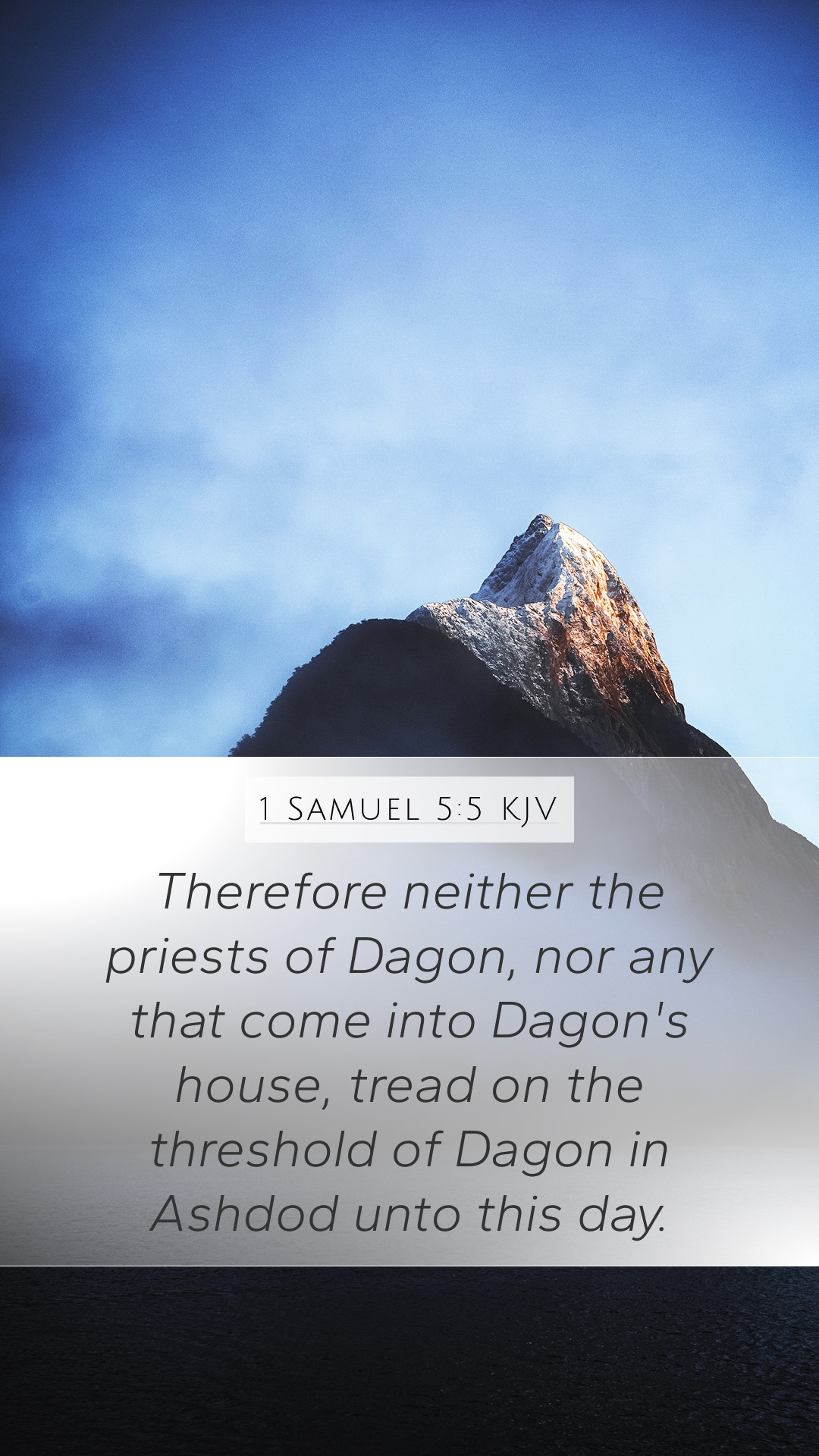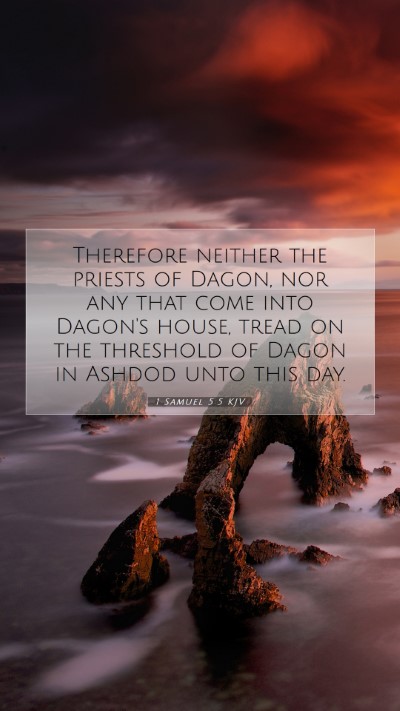Understanding 1 Samuel 5:5: A Comprehensive Commentary
Bible Verse: 1 Samuel 5:5
Verse Text: "Therefore neither the priests of Dagon, nor any that come into Dagon's house, tread on the threshold of Dagon in Ashdod unto this day."
Overview of 1 Samuel 5:5
This verse occurs within a narrative detailing the consequences faced by the Philistines after they captured the Ark of the Covenant. The Ark, representing God's presence, caused turmoil among the Philistines, particularly centered around their god, Dagon. This scripture reveals not only the reverence (or fear) that the Philistines developed concerning their deity but also hints at a broader message concerning the irrelevance of false gods in contrast to the living God of Israel.
Bible Verse Meanings Through Commentaries
- Matthew Henry's Commentary:
Henry highlights that the fall of Dagon, symbolizing the futility of idolatry, serves as a clear demonstration of God's sovereignty over false gods. He notes that this verse emphasizes the profound impact of God’s power, ultimately leading to rituals designed to avoid the threshold where Dagon had fallen.
- Albert Barnes' Notes:
Barnes elaborates on the superstitious practices developed by the Philistines due to fear of divine retribution. He indicates that the avoidance of the threshold became a cultural observance, underscoring their acknowledgment of what had transpired. The commentary emphasizes how God confronts the nations through their idols, teaching them divine authority.
- Adam Clarke's Commentary:
Clarke provides insight into the cultural context of Ashdod and the reverence shown to Dagon by its priests. He notes that by avoiding the threshold, the Philistines believed they could pacify the wrath of their deity. Clarke draws attention to this as a reflection of human folly in the context of worshipping idols, causing readers to reflect on the significance of true worship and the dangers of idolatry.
Thematic Insights
- The Sovereignty of God:
This narrative illustrates God’s unmatched power. The fall of Dagon demonstrated that no god can withstand the supremacy of the God of Israel.
- Consequences of Idolatry:
The practice of avoiding the threshold serves as a metaphor for the absurd lengths to which humans will go to appease false gods, highlighting the futility of idol worship.
- God’s Judgement:
The afflictions experienced by the Philistines served as manifestations of God's judgment, compelling them to confront their misguided beliefs and the severe implications of capturing the Ark.
Application of 1 Samuel 5:5 in Daily Life
For modern believers, this verse prompts reflection on what "idols" might exist within their own lives. Whether they manifest as material possessions, trivial pursuits, or unhealthy relationships, the call to recognize and confront these barriers is evident. The fear of God’s judgment should motivate individuals to seek authenticity in their faith and worship practices.
Related Bible Cross References
- Isaiah 46:1-2: Discusses the burdens of idol worship and God's authority over false gods.
- Exodus 20:3-5: The Second Commandment forbidding the worship of idols.
- 1 Corinthians 10:20-21: Paul’s teaching on idolatry and communion with the true God.
Conclusion
The passage in 1 Samuel 5:5 serves as a potent reminder of the power of God in contrast to the impotence of idols and false worship. This scripture analysis encourages believers to evaluate their lives for influences that detract from true devotion to God, ensuring that His supremacy is acknowledged in all aspects of life.
Further Study Suggestions
For those interested in delving deeper into biblical studies, consider engaging with the following:
- Bible Study Resources: Explore online platforms for a diverse range of Bible study tools.
- Bible Study Groups: Join discussions to gain insights on various scripture interpretations.
- Bible Study Courses: Enroll in educational programs for structured lessons on biblical exegesis.


